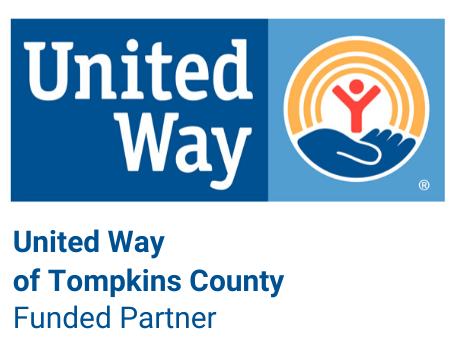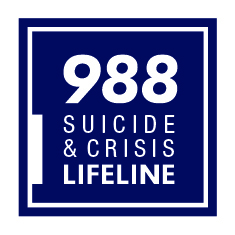The Crisisline 607-272-1616 or 800-273-TALK (8325)
Are you upset, confused, depressed, lonely, hurt, angry, scared, suicidal, worried about someone else, or so overwhelmed that you don’t know what to do? Calling for help when you are in emotional pain is smart. We don’t give advice, judge, or try to fix you. We are here to listen, support, and guide you towards finding your own solution.
Veterans or family of veterans:
call 1-800-273-TALK and press 1
to be connected to the VA crisis line.
Frequently Asked Questions
Q: Is this really a crisis!? I’m not really sure what to call this.
A: The word “crisis” can sometimes be a scary word. If your usual coping mechanism is not working, you may be in a crisis. The Crisisline provides services that encourage the decision-making process.
Q: What do people call the Crisisline about?
A: All kinds of things. Any emotional issue or struggle including issues around relationships, work or school, money, illnesses, sexuality, violence, addictions, loneliness, accidents, and suicide thoughts.
Callers often begin by saying how they are feeling, such as: I’m confused. Why did he hurt me? I’m overwhelmed. I’m scared. The pain is unbearable. I’m so angry. I’m so ashamed. I miss her so much. I’m exhausted.
Q: What is crisis?
A: An emotional crisis occurs when stressful events or experiences overwhelm our abilities and resources to cope. When we are dealing with an emotional crisis we feel out of control, off balance, anxious. We temporarily “can’t think straight.” When these feelings are especially difficult or large in scope, or they take place when our resources, energy or coping skills are weak, we may respond by entering a crisis state. No one is immune from crisis.
Q: Is the Crisisline only for people thinking of dying by suicide?
A: No, you can call about anything that is causing you to feel distressed, emotionally uncomfortable, overwhelmed, sad or otherwise upset.
Q: What if I’m worried about someone else, can I call the Crisisline?
A: Yes, people often call who are concerned about a friend, family member, co-worker, student, roommate or other associate. Perhaps their roommate has expressed suicidal thoughts or their mother cannot take the stress of care giving. It is smart to call, even if the call is not necessarily about you.
Q: I have a hard time talking about my emotions? How can you help me?
The counselor will be patient if you are struggling for the right words. If you really can’t talk on the telephone, you can try the Crisis Text Line, a national service that uses SMS text messaging for people in crisis. (This service has no affiliation with the Crisisline of Suicide Prevention and Crisis Service.)
Q: What will happen when I call the Crisisline?
A: A trained and caring counselor will listen to you without judgment or distraction. The counselor will then help you to sort out your problems and potential solutions. If necessary, the counselor will lead you in the direction of other social service agencies that can give you more help.
Read this blog post about one person’s experience calling the Lifeline.
Q: Will I get the same counselor if I call again?
A: You will always get a trained and caring counselor, but it might not be the same one you spoke with previously.
Q: How can I be sure the call is confidential?
A. Yes, your call is confidential. The counselor who takes your call will never ask who you are: this allows for both sides to be honest throughout the conversation.
Q: Is this just for the people calling from the 607 area code?
A: Primarily, yes. If you live in the Southern Tier or Finger Lakes region, but are using a cell phone with a different area code, please call us at (607) 273-TALK (8255).
Q: I’d like to volunteer as a counselor. How do I get started?
A: We are not training volunteers for the Crisisline at this time, but we are developing a training program for volunteer educators. Learn more here.

The mission of Suicide Prevention & Crisis Service is to promote constructive responses to crisis and trauma, and to prevent violence to self and others through direct support and community education. SPCS is a 501(c)3 nonprofit organization, a United Way Agency, and a regional member of the National Suicide Prevention Lifeline.

